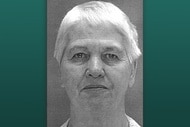Create a free profile to get unlimited access to exclusive videos, breaking news, sweepstakes, and more!
‘Fatal Vision’ Killer Jeffrey MacDonald Hopes To Get Compassionate Release
Jeffrey MacDonald was convicted iof brutally murdering his pregnant wife Colette and their two young daughters in their Fort Bragg home in 1970 — later claiming the family had been killed by drug-crazed hippies.

Former Green Beret Jeffrey MacDonald, serving a life sentence for the 1970 murders of his pregnant wife and two young daughters — a case dissected in numerous book and film projects — has asked for compassionate release from prison.
MacDonald’s attorneys made the plea on his behalf before a judge during a hearing Thursday afternoon, a spokesperson for the United States District Court for the Eastern District of North Carolina confirmed to Oxygen.com.
Prosecutors have argued against the release, noting the gruesome nature of the crime and arguing that the court lacks the jurisdiction to consider the request.
“Given the nature and circumstances of the brutal murders of his family, including his little girls, to release MacDonald now would not reflect the seriousness of his crimes, would engender disrespect for the law, and would undermine the just punishment he deserves for his crimes,” prosecutors said in an opposing motion obtained by Oxygen.com.
The judge hasn't ruled on the motion and is taking the issue “under advisement,” while he reviews all the evidence in the case, according to the court spokesperson.
MacDonald, an army surgeon, was convicted in 1979 for the slayings of his pregnant wife, Colette, his 5-year-old daughter Kimberly, and 2-year-old daughter Kristen in their home at Fort Bragg in Fayetteville, North Carolina.
MacDonald claimed he had been asleep on the couch in the early morning hours of Feb. 17, 1970 when a group of drug-crazed hippies broke into his home, attacked him and killed his family in a ritualistic slaying reminiscent of the murders carried out by Charles Manson’s followers just six months earlier.
But prosecutors had a much different view of the crime and contended that MacDonald—who had only suffered minor injuries himself—killed his pregnant wife after the two got into a physical argument and Kimberly had walked into their bedroom at some point during the fight.
Assistant U.S. Attorney John E. Harris said in his recent motion arguing against MacDonald’s release that he cracked Kimberly’s skull with a wooden club, then used the same club to bludgeon Colette repeatedly, breaking both of her arms as she tried to defend herself.
“MacDonald clubbed Colette repeatedly in the head, resulting in five separate ragged tears in the skin—some as long as four or five inches,” he wrote.
After knocking Kimberly unconscious with the blow to the head, Harris said MacDonald—who has continued to maintain his innocence—carried her “likely unconscious or incapacitated” body back to her bed before delivering another blow to the side of her face, shattering her cheek bone.
After realizing he had likely killed his wife and daughter, prosecutors said MacDonald decided to stage a “ritualistic killing to support his would-be cover story that a group of hippies entered his home and murdered his family” in an effort to “salvage his own freedom and career.”
He used a paring knife to repeatedly stab Kimberly in the chest and neck.
Investigators believe that at some point Colette, who was five months pregnant with a boy, had regained consciousness and went into the bedroom of her youngest daughter to try to shield her from the brutality.
But prosecutors said MacDonald once again bludgeoned his wife with the club—leaving her blood spattered across the bed—and then used a sheet to drag her back into the couple’s master bedroom where he repeatedly stabbed her with a knife and ice pick.
Prosecutors said he stabbed Kristen 17 times in the chest, neck and back with the paring knife, penetrating her heart with one of the jabs.
Harris argued that Kristen’s death had been carried out in “cold blood” and even included a series of gruesome photos of the bodies to demonstrate the heinous nature of the crimes.
“Extending ‘compassionate release’ to one who showed no compassion to his young daughters and pregnant wife is a contradiction in terms. Thus, to let MacDonald out early, pandemic notwithstanding, would undermine the seriousness of his crimes and do a great disservice to respect for the law,” he wrote.
MacDonald’s attorneys have argued that his advanced age and underlying medical conditions—including chronic kidney disease and a past history of skin cancer—constitute an “extraordinary and compelling” reason for his release during the pandemic, along with the time he’s already served behind bars, according to the motion.
Prosecutors, however, say that MacDonald was offered the COVID-19 Moderna vaccine on March 3 and refused it, according to court documents obtained by Oxygen.com.
“Although MacDonald is free to refuse the COVID-19 vaccine, his doing so nevertheless eliminates the only ‘extraordinary and compelling’ reason he has offered warranting a sentence reduction—the risk of severe illness presented by COVID-19,” Harris wrote in a supplemental response.
They also said that while MacDonald was denied parole in 2005, he has waived his two most recent opportunities to seek parole in May 2020 and October 2020.
MacDonald has long proclaimed his innocence in the slayings and continues to maintain that his family was killed by intruders.
In 2012, the U.S. District Court for the Eastern District of North Carolina held an extensive evidentiary hearing in the case after his defense attorneys had argued there was new evidence supporting his innocence, but two years later, in 2014, the court issued a 112-page written opinion of the evidence upholding the jury’s decision.
MacDonald—who later remarried his second wife Kathryn MacDonald while behind bars—has since exhausted his appeals.
The case received national attention after journalist Joe McGinnis was hired by MacDonald’s defense attorney to ostensibly tell his side of the story. As part of the agreement, McGinnis was granted unprecedented access to MacDonald and his legal team. But when the best-selling book “Fatal Vision” was released in 1983, McGinnis concluded that MacDonald had killed his family in an amphetamine-fueled rage.
A popular television mini-series of the same name, starring Gary Cole as MacDonald, came out the following year.
MacDonald’s story was revisited again last year in the FX’s five-part docuseries “A Wilderness of Error” which re-examined the evidence in the case and explored the theory that the crime could have been carried out by a group of intruders.


























